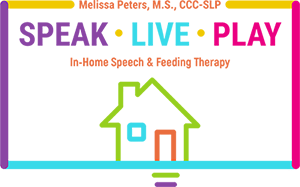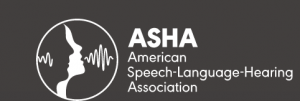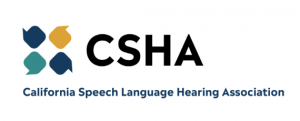How does hearing loss affect speech and language development?
Hearing loss can significantly impact a child’s speech and language development. Hearing words and sounds enable a kid to learn to talk and understand. Hearing disorders are conditions affecting the child’s hearing, ranging from mild to profound. A kid with hearing loss may understand the general idea of a conversation but miss specific words or sounds. These kids also have problems hearing and understanding conversations in a distracting or noisy environment. The severity of hearing disorders also ranges from mild hearing loss to complete deafness.
Hearing disorders are relatively common in kids, with about 1.9% having hearing problems and 0.10% having permanent hearing loss. Hearing loss is slightly more prevalent in boys. Failure to recognize and address hearing loss early can significantly affect a kid’s ability to understand and speak. Some of the other challenges brought about by hearing loss include:
- Delayed speech and language skills
- Feeling bad about themselves
- Having trouble making friends
- Learning problems in school
Signs and symptoms of hearing loss in Kids
Hospitals carry out routine hearing screening on infants a day or two after birth. When a kid exhibits signs of hearing loss, doctors usually schedule a second hearing screening a few weeks later. Nevertheless, sometimes infants who pass the hearing screen may develop hearing loss as they grow older. The best way to determine whether your kid’s hearing is developing normally is through monitoring crucial speech and hearing milestones. Below are the important speech and hearing milestones according to the American Speech-Language-Hearing Association:
Babies and infants
From birth to the age of 4 months, the newborn should:
- Startle at loud noises
- Respond to the parent’s voice by cooing or smiling
- Stir or wake up at loud sounds
- Relax when they hear a familiar voice
From the age of 4 to 9 months, the infant should:
- Respond with a smile when parents talk to them
- Turn their head when they hear a familiar sound
- Notice toys that make sounds
- Understand hand motions such as waving bye-bye
- Make babbling noises
At the age of 9 to 15 months, the baby should:
- Repeat simple sounds
- Make various babbling sounds
- Respond to name
- Understand simple request
- Use their voice when seeking your attention
At the age of 15 to 24 months, the toddler should:
- Name some of the common things
- Use simple words to communicate
- Follow simple commands
- Point to some of the familiar objects that you name
- Name common things
- Listen with interest to rhymes, songs, and stories
Signs of hearing loss in toddlers and school-age children
Sometimes older kids can develop hearing loss that was not present at birth. Signs of hearing loss in older children include:
- Difficulty in understanding what you say to them
- Doesn’t respond when you call their name
- Speak differently when compared to their peers
- Misunderstand commands or question and responds inappropriately
- Has language or speech delays or issues articulating things
- Complains of ear pain, noises, or earaches
- Has issues academically that were not present
- Watches other people imitate their actions
- Turns the volume of the television high or likes to sit close to it for them to hear
- Watches your face very intently to read your lips
- Say “huh?” or “what?” multiple times daily
Can Ear Infections and Fluid Affect Hearing?
Yes, it can! When your child gets an ear infection, fluid accumulates in his inner ear. The ear functions by moving small parts inside the middle ear. When the inner ear fills with fluid, the small components can’t travel as freely, and the sound can’t reach the brain as effectively. Imagine listening to the radio while immersing your ears in a bath or pool. While you can hear the song playing, you will most likely be unable to comprehend the words. When fluid develops in the inner ear of the kid, this is how it feels.
A kid with an ear infection has fluid in the infected ear. However, the medications prescribed by your pediatrician help clear the infection while leaving the fluid behind. In some cases, the kids have fluid in the inner ears even when it is not infected. The fluid can result in significant language and speech difficulties due to moderate hearing loss. It is essential to have your pediatrician check your child’s ears regularly (during routine check-ups) to ensure no fluid in the kid’s ears.
What caused my child’s hearing loss?
Various conditions can lead to hearing loss in kids. Below is a list of hearing disorders present at birth and those that develop early on as the kid grows.
When a child is born with hearing loss
Congenital hearing loss is when the baby is born with hearing disorders. Various things can lead to the development of a hearing disorder, but it is not always possible to know the exact cause. Research indicates that about half of the causes develop due to genetics, meaning that the baby inherits it from a parent. Recent studies show that genetic factors are responsible for more than fifty percent of all hearing disorders in kids present at birth or those that develop later as they grow. The genetic factors that are responsible for causing congenital hearing loss include:
Autosomal recessive hearing loss
This hearing problem is the most frequent genetic congenital hearing disorder, contributing to over 70% of all instances of genetic hearing loss. The condition means that even though neither parent has hearing problems; they both carry a recessive gene passed down to the kid. When their baby is born with this hearing problem, parents are frequently shocked because most people are unaware they have the genetic defect. When their baby is born with this hearing problem, parents are frequently shocked because most people are unaware they have the genetic defect.
Autosomal dominant hearing loss
According to the American Speech-Language-Hearing Association, autosomal dominant hearing impairment contributes to around 15% of all hereditary hearing disorders. Hearing loss occurs when one parent carries a dominant gene for hearing problems and passes it on to their kid. In most cases, the responsible parent may not have hearing loss but often exhibit other symptoms of the genetic syndrome.
Congenital cytomegalovirus infection in pregnancy
Congenital cytomegalovirus infection, known as CMV, is an infection during pregnancy that can cause blindness or hearing loss in the infant. CMV is a viral disease in the herpes family that causes chickenpox and cold sores. Infections with CMV are prevalent in young children. These infections can be risky during pregnancy since they can create issues for unborn infants such as hearing loss, learning challenges, vision impairment or blindness, and epilepsy. When the expectant mother has never been infected with CMV, the infection is dangerous to the infant. It is not always easy to prevent a CMV infection, but you may lower your risk by:
- Cleaning your hands regularly with hot water and soap, especially after changing the nappies or working at a daycare or nursery center
- Avoid kissing newborns on their faces; instead, you can hug them or kiss them on their heads.
- Avoiding sharing cutlery or food with the newborns
Doing this is crucial, especially if your job involves connecting with toddlers. In these cases, you will need a blood test to ensure you are not infected with CMV.
Genetic syndromes
Various genetic syndromes also lead to a child being born with a hearing problem. These include Treacher-Collins syndrome, Down syndrome, Usher syndrome, Alport syndrome, Waardenburg syndrome, and Crouzon syndrome.
Non-genetic factors that cause congenital hearing loss
Birth complications include rubella cytomegalovirus, herpes, toxoplasmosis, and other serious infections. Other complications such as the requirement of blood transfusion or insufficient oxygen can also lead to hearing disorders.
- Use of ototoxic medications- The use of certain drugs by the mother during pregnancy can also cause hearing loss in the developing fetus. Ototoxic medications include prescribed medication such as certain pain relievers and antibiotics. These medications usually damage the hearing features and auditory nerves in a fetus.
- Premature birth also puts babies at increased risk of hearing disorders risks. This includes kids born with fewer than three pounds or who need life-sustaining drugs for breathing because of premature birth.
- Brain or nervous system disorders
- Alcohol, drug abuse, or smoking during pregnancy
- Maternal diabetes
When a child develops hearing loss later
Acquired hearing loss can also affect kids, which can develop later after birth. The condition can lead to temporary hearing problems, which are resolved when the problem is corrected. Some of the common causes of acquired hearing disorders include:
- Meniere’s disease or Otosclerosis
- Serious head injuries
- A perforated eardrum
- Serious infections such as measles, meningitis, whooping cough, and mumps
- Use of medications that are linked to hearing loss
- Exposure to loud sounds leads to noise-induced hearing problems
- Exposure to toxins such as smoke
- Frequent or untreated ear infections
What to do when I Suspect My kid has a Hearing disorder?
If you are worried about your child’s hearing, consult with their pediatrician. The pediatrician will assess your kid’s hearing to see whether there is an abnormality. You may also conduct some informal testing at your home. To determine if your kid responds, stand behind them while they are busy and creating noise. Play music from a favorite toy, gently mention the child’s name, or try out various speech sounds to determine which ones he reacts to. Repeat this numerous times to ensure that your kid isn’t simply ignoring you.
Kids with suspected hearing disorders require a comprehensive hearing examination by an audiologist. The experts can evaluate all kids, including those unable to engage in traditional screenings. They usually examine brain waves as sound is introduced to determine if the child’s brain heard the sound. You may need a doctor’s recommendation to see an audiologist, so consult your physician first.
What Can Be Done for Kids with Hearing Loss?
One of your first responsibilities as a parent of a child with a hearing impairment is to determine what to do about it. Luckily, you have numerous alternatives, and your audiologist and the speech-language pathologist can help you make that decision. The only thing that matters is that you act as soon as possible. Kids recognized at birth or shortly after should begin therapy within six months. Children who are discovered later in life should start counseling as soon as possible.
How Does Speech Therapy Work for Hearing Disorders?
A child with a hearing disorder can benefit greatly from speech therapy, especially when enrolled early. The therapy will enable the kid to develop the necessary language and speech skills normally. Speech-language pathologists utilize several techniques and exercises to help children with hearing problems. Below are the techniques and procedures that these experts utilize to help kids with hearing loss communicate effectively.
- At the beginning of the therapy sessions, the speech-language pathologist starts by visually inspecting the amplification equipment, which may include a cochlear implant or hearing aids, to check the signal quality. The SLP also consults other relevant experts, including audiologists and teachers of the deaf, to come up with effective strategies to address the issue.
- Next, the therapist customizes the treatment to meet the kid’s needs and develops an appropriate program to manage the issue. The procedure includes the following:
- Early intervention strategies help in developing early communication skills. These strategies include eye contact, turn-taking, and initiation.
- Strategies for the development of social and interaction skills such as discourse skills, nonverbal communication, and social communication skills
- Modification of the environment to make it easy for language and communication
- Speech reading
- Auditory training
- Direct treatments that aim at improving the kid’s sign intelligibility or speech
- Direct and indirect techniques that foster the development of expressive and receptive language skills
Other treatment strategies
Audiologists, SLPs, and doctors work together to help reverse hearing disorders. The experts use various strategies that help in managing the problem. For example, in cases of ear infections, these experts recommend using antibiotics or surgery to treat the infection. Doctors also use ear drops or cholesteatomas to remove the earwax.
In the case of mild to serious hearing disorders that are hard to reverse, doctors use hearing aids that compensate for the impairment. Hearing aids are accessible for both newborns and older children. A hearing aid or earbuds can be utilized if the hearing loss is minor to moderate or impacts just one ear. Kids with impairment in only one ear can benefit from an FM auditory trainer, which transmits a teacher’s voice to a hearing aid in the healthy ear.
Conclusion
When you suspect your child has hearing loss, consult your pediatrician immediately. The pediatrician will assess the condition and may refer you to a pediatric audiologist or ENT doctor for further tests. The experts also involve a speech-language pathologist to help with language and speech development. Speak Live Play, a leading therapy center specializing in hearing loss and speech-language development, offers comprehensive services tailored to your child’s needs. Take the first step towards improving your child’s hearing and speech abilities by scheduling a consultation with Speak Live Play today!



